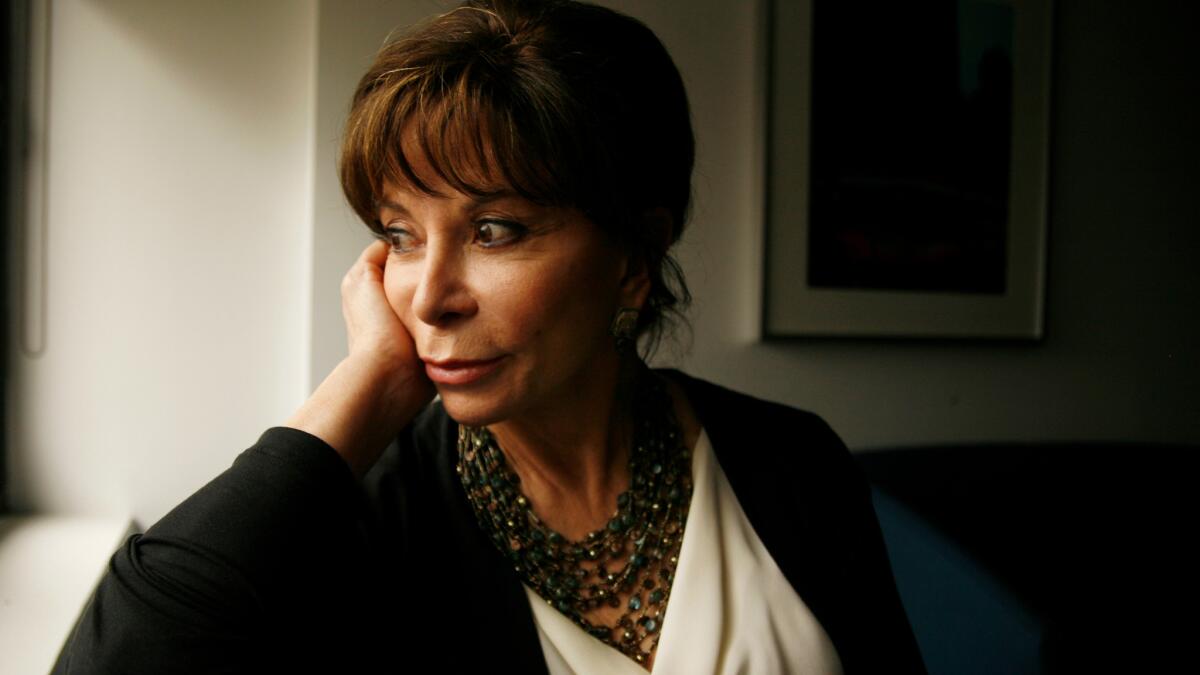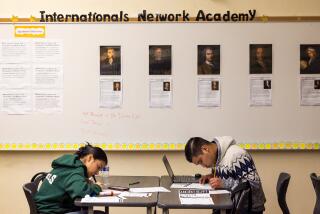Opinion: Trump’s slashing of the refugee cap denies our history — and these successes

What do acclaimed novelist Isabel Allende, Google co-founder Sergey Brin and actor Andy Garcia all have in common? Each resettled in the U.S. as refugees. Allende fled Chile after a CIA-backed coup when, ironically, Henry Kissinger, a refugee from Nazi Germany, served as secretary of State (and who, as President Nixon’s national security advisor, pushed for the coup that ousted Allende’s cousin, Salvador Allende). Brin fled Jewish persecution in the former Soviet Union. Garcia left Cuba with his family after the Castro revolution.
Each has since contributed significantly to the U.S. Yet they might well have found their successes in Europe or elsewhere were it not for this country’s historic role as a haven for some of the world’s displaced and persecuted people.
President Trump’s decision Wednesday to further reduce the number of refugees the U.S. will accept for resettlement is not only bad for those who might want to jump into this melting pot of ours, but it’s also bad for the nation’s standing in the world, and for American society. We, the very definition of a nation of immigrants, should be expanding our capacity to receive and resettle refugees, not throttle it back.
Not every resettled refugee will thrive, of course, and most of those who do succeed tend to be in small businesses or other often unrecognized ways. But the impacts of many of them have been profound. Albert Einstein, Marc Chagall, Bela Bartok, Vladimir Nabokov and others washed up in the U.S. after fleeing their home countries. As have these folks:
Madeline Albright, the nation’s first female secretary of State, fled Czechoslovakia at the start of World War II. W. Michael Blumenthal, Treasury secretary under President Carter, fled Nazi Germany and reached the U.S. after eight years in Japan-occupied Shanghai. Anh “Joseph” Cao was the first Vietnamese member of Congress. Gloria Estefan, musician and actor, fled Cuba with her family when she was a child. Milos Forman, Academy Award-winning director, was working in the U.S. when he decided not to return to his home country after the Soviet invasion ended Czechoslovakia’s Prague Spring.
Kieu Hoang, founder of Rare Antibody Antigen Supply, a California-based blood-products corporation, exited Vietnam at the end of the war. Actor Mila Kunis fled anti-Semitism in Ukraine during the Soviet era. Li Lu, a successful hedge fund manager, fled China after surviving the Tiananmen massacre which ended an occupation that he helped organize. Gai Nyok, a foreign service officer with the State Department, was among the “Lost Boys” orphaned during the Sudan civil war. Viet Nguyen, a Pulitzer-winning novelist and USC professor (and critic at large for The Times), fled Vietnam with his family at the end of the war.
Anoosheh Oskouian, CEO of Ship and Shore Environmental in Long Beach, was stranded as a student in the US. when the Iranian revolution occurred. Thomas Peterffy, a pioneer of digital trading (and a Trump supporter), escaped from Hungary during the Soviet era. Thuan Pham, chief technology officer for Uber, fled Vietnam on a boat with his family in 1979. Singer Regina Spektorfled anti-Semitism in the Soviet Union.
Marta Tellado, president and CEO of Consumer Reports, fled with her family from Cuba when she was a child. David Tran, founder of Huy Fong foods (sriracha sauce), a major in the South Vietnamese army, fled at the end of the war. Steven F. Udvar-Házy, billionaire co-founder of International Lease Finance Corp. (an airplane leasing firm), fled Hungary after the 1956 uprising. Loung Ung, author and human rights activist, escaped Cambodia after being tortured by the Khmer Rouge.
And on and on.
We, the very definition of a nation of immigrants, should be expanding our capacity to receive and resettle refugees.
Refugees have made this a better country and a better society, according to a range of studies. More refugees become entrepreneurs (13%) than did native-born Americans (9%). In 2015, nearly 2.3 million refugees earned $77.2 billion in household income and paid $20.9 billion in taxes.
A draft report by the Department of Health and Human Services — which was subsequently rejected by the White House — found that over a 10-year span refugees, sent $60.3 billion more in revenue at all levels of government than they received in benefits, undercutting the lie that refugees are a drain on the American taxpayer.
So why reduce the cap? To preserve “the security and safety of the American people, according to the State Department. But that’s a canard: Refugees are vetted twice, once by the United Nations before they are referred to a country for resettlement, and then by federal officials stationed overseas and here in the U.S., a process that means the chance of an American being killed by a terrorist on home soil is about 1 in 3.6 billion per year.
“The security threat posed by refugees resettled to the United States is an illusion,” said Kathleen Newland, co-founder of the Migration Policy Institute. “Refugees are the most heavily vetted of all groups who enter the country, and not one has ever killed anyone in a terrorist attack on U.S. soil.”
Establishing a refugee cap began with a 1980 law, and the new cap of 45,000 is the lowest by a significant degree — 70,000 was the second lowest, and the new cap is 40% below the 110,000 ceiling President Obama had offered for the coming year. So what Trump is doing is not improving safety but, as Bill Frelick, the refugee rights director for Human Rights Watch, put it, “an abdication of U.S. leadership at a time of greatest need for the world’s refugees.”
Actually, it’s more than that. It’s a denial of our history, and of the refugees who have become one of us. And that is shameful.
Follow my posts and re-tweets at @smartelle on Twitter
More to Read
A cure for the common opinion
Get thought-provoking perspectives with our weekly newsletter.
You may occasionally receive promotional content from the Los Angeles Times.







